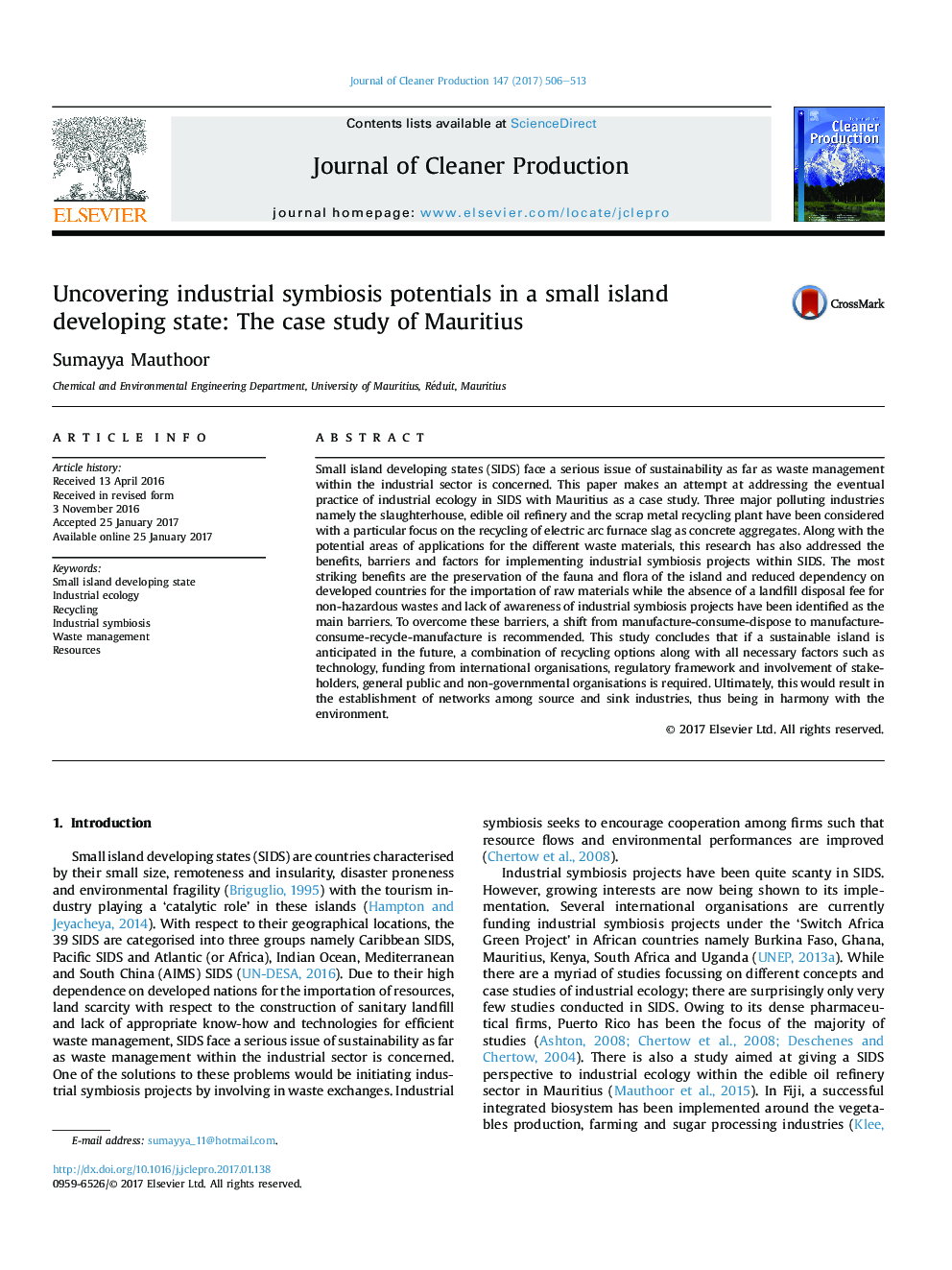| Article ID | Journal | Published Year | Pages | File Type |
|---|---|---|---|---|
| 5481498 | Journal of Cleaner Production | 2017 | 8 Pages |
Abstract
Small island developing states (SIDS) face a serious issue of sustainability as far as waste management within the industrial sector is concerned. This paper makes an attempt at addressing the eventual practice of industrial ecology in SIDS with Mauritius as a case study. Three major polluting industries namely the slaughterhouse, edible oil refinery and the scrap metal recycling plant have been considered with a particular focus on the recycling of electric arc furnace slag as concrete aggregates. Along with the potential areas of applications for the different waste materials, this research has also addressed the benefits, barriers and factors for implementing industrial symbiosis projects within SIDS. The most striking benefits are the preservation of the fauna and flora of the island and reduced dependency on developed countries for the importation of raw materials while the absence of a landfill disposal fee for non-hazardous wastes and lack of awareness of industrial symbiosis projects have been identified as the main barriers. To overcome these barriers, a shift from manufacture-consume-dispose to manufacture-consume-recycle-manufacture is recommended. This study concludes that if a sustainable island is anticipated in the future, a combination of recycling options along with all necessary factors such as technology, funding from international organisations, regulatory framework and involvement of stakeholders, general public and non-governmental organisations is required. Ultimately, this would result in the establishment of networks among source and sink industries, thus being in harmony with the environment.
Keywords
Related Topics
Physical Sciences and Engineering
Energy
Renewable Energy, Sustainability and the Environment
Authors
Sumayya Mauthoor,
